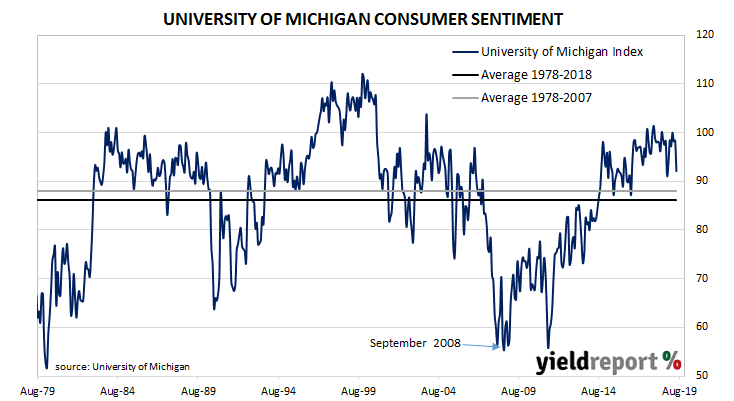US consumer confidence had started 2019 at well above average levels in a longer-term context, although it was markedly lower than the more buoyant readings which typified most of 2018. After rebounding from the falls of January and February, US households had maintained a historically high level of confidence. However, the latest report indicates they have been spooked by recent actions from the US central bank and the Trump Administration’s trade policies.
The latest survey conducted by the University of Michigan indicates the average confidence level of US households has fallen back considerably, albeit from an elevated level. The University’s preliminary estimate of its Index of Consumer Sentiment fell from July’s figure of 98.4 to 92.1 in August, well below the consensus figure of 97.1.
The University’s Surveys of Consumers chief economist, Richard Curtin, said the first cut in the federal funds rate since October 2008 had sent a signal to households. “The main takeaway for consumers from the first cut in interest rates in a decade was to increase apprehensions about a possible recession. Consumers concluded, following the Fed’s lead, that they may need to reduce spending in anticipation of a potential recession. Falling interest rates have long been associated with the start of recessions…”
However, he also noted the role of a strong employment market. “Perhaps the most important remaining pillar of strength for consumer spending is favourable job and income prospects, although the August survey indicated some concerns about the future pace of income and job gains. It is likely that consumers will reduce their pace of spending while keeping the economy out of recession at least through mid-2020.”

